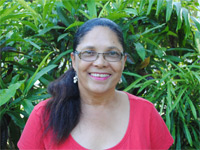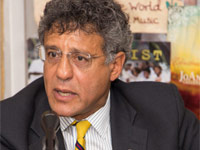Bahamas Agricultural and Industrial Corporation (BAIC) has set out to boost local plantain and banana production. To that end, it has distributed 3,000 tissue-cultured plantlets to farmers throughout the islands.
And, assistant general manager (agriculture) Arnold Dorsett has confirmed that pineapple plantlets are being compiled for distribution. “There is a healthy market for these products and we want farmers to be in a strong position to take advantage of every opportunity,” he said.
Already one of the greenhouses at the North Andros agri-industrial park is being stocked with plantlets for propagation and distribution.
“It is a matter of priority that we do whatever we can to inspire farmers towards increased production,” said BAIC executive chairman Edison M Key.
“Food and Agriculture Organisation director-general Jacques Diouf put it plain: ‘We are indeed on the verge of what could turn out to be another major food crisis,’ he said.
“He spoke of ‘soaring agricultural commodity prices in international markets.’ Since we import most of our food, that means we are going to have to spend more and get less.
“I agree with the secretary-general that the time has come to adopt and implement policies that will enable all farmers to earn decent incomes.
“They must be allowed to exercise their profession under conditions of dignity so we can feed our growing nation and the millions of tourists who visit us each year, without having to rely so heavily on imports, the cost of which is ever increasing.”
Lucayan Tropical, the nation’s premier hydroponics operator, was contracted to prepare the tissue culture materials, and harden-off the plantlets to about four feet. They were then distributed through farmers associations and groups. The first distribution of plantain plantlets are coming into production.
Already farmers have begun thinning out suckers which will grow into new plants and themselves produce more suckers. Some plants can produce up to 10 suckers. Two weeks ago the first 300 tissue-cultured plantain plantlets for the year were distributed.
“The important thing is that we are getting clean tissue-cultured material out into the farming community where they can multiply and provide fresh material for farmers,” said Mr Dorsett. BAIC is in the process of sourcing some 5,000 tissue-cultured pineapple slips. They are of the annas comosus or smooth cayenne variety.
“These will be disseminated to farmers so they can put these new clean virus-free tissue-cultured pineapple slips out into the field and begin to expand their variety and benefit from some of the new characteristics of some of these pineapples,” said Mr Dorsett. As the name implies, the leaves of the smooth cayenne are not spiny like those of the local sugar loaf variety.
“Bahamian growers might find these more appealing,” said Mr Dorsett.
“These are very productive. They grow large and they are very sweet.
“We are trying to improve on size and variety so we can have pineapples coming on the market earlier or later than usual.”
He was hopeful of the co-operation of all government agencies involved in agriculture, “so that when farmers produce, they have access to the market. “If we are not harmonised in our efforts then, while farmers are growing excellent quality products, if the market doesn’t know the products are available, imports will be coming in to compete when in fact there would be no need for that.”
By Gladstone Thurston
Bahamas Information Services



